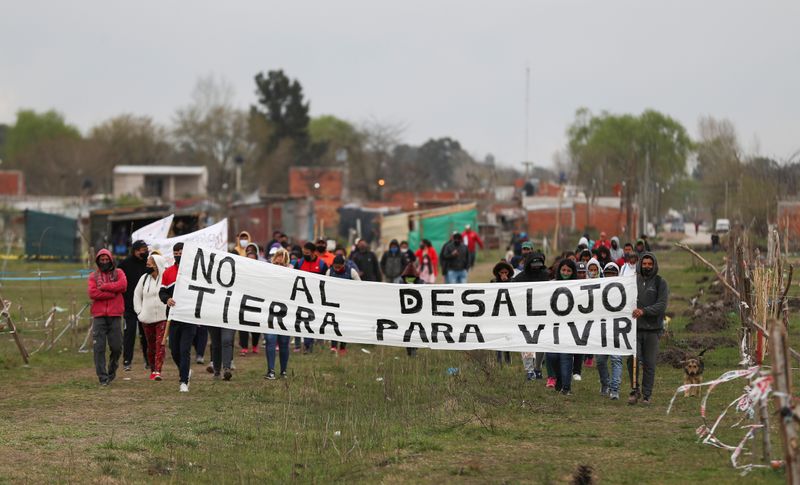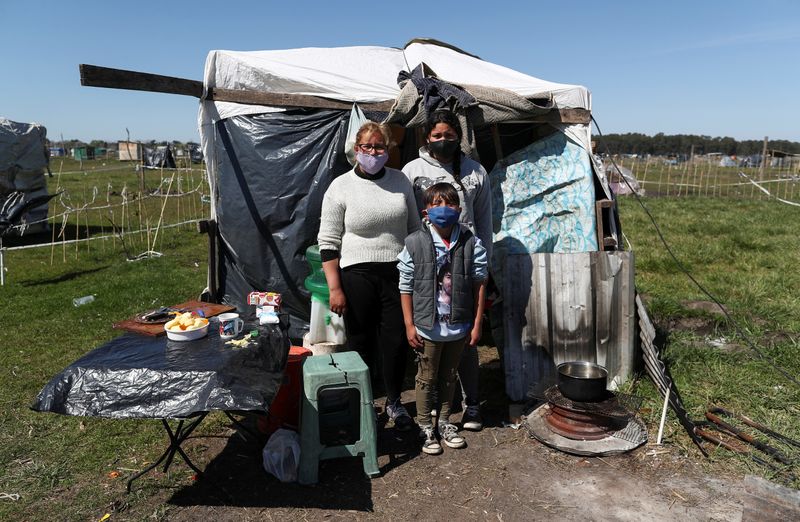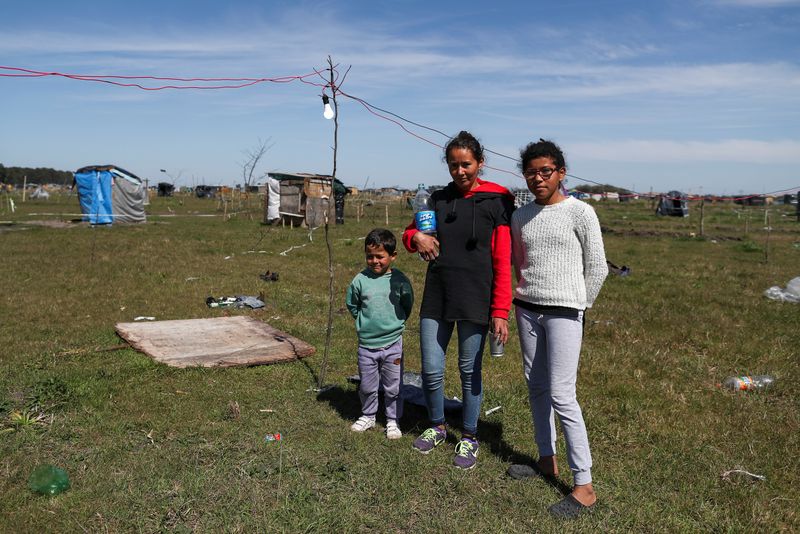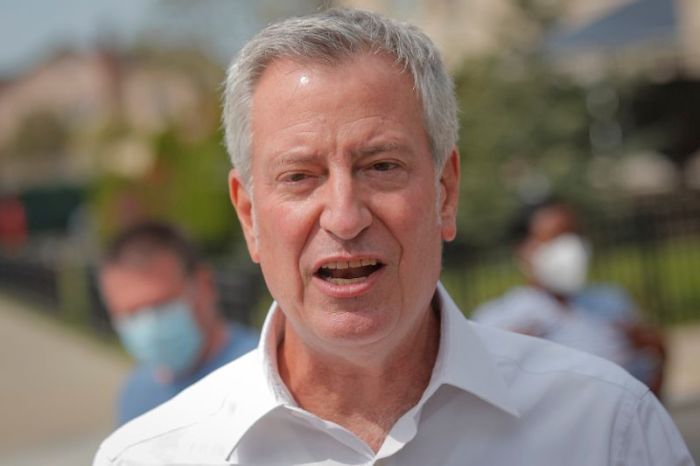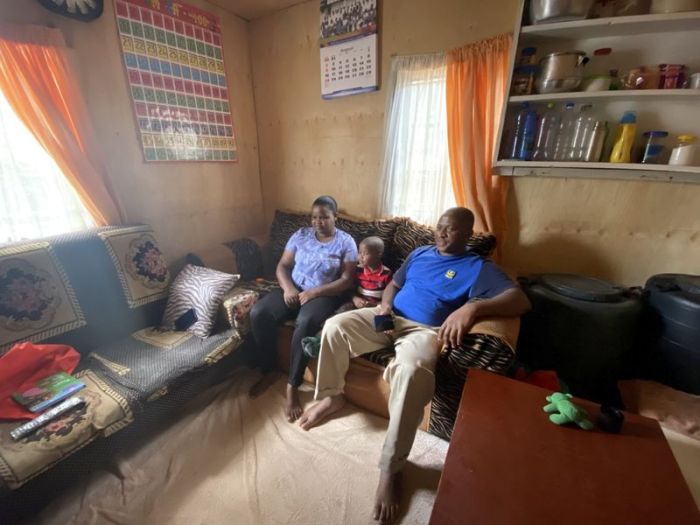BUENOS AIRES (Reuters) – When the coronavirus pandemic hit Argentina, painter Gonzalo Esquivel could not know it marked the beginning of a personal crisis that would eventually see him living on a vacant piece of land with thousands of others evicted from their home.
With his work disrupted by the virus, Esquivel, 23, was unable to pay his rent. He now lives in a makeshift slum that sprang up when people who lost their homes started to occupy a patch of land near the town of Guernica in Buenos Aires province.
“I couldn’t pay the rent any more and I ended up on the streets,” Esquivel said. “I sold my furniture, my TV, my things… I have nowhere to go.”
Argentina, already in recession since 2018, is headed for a steep 12% economic contraction this year. The pandemic has pushed up poverty levels and unemployment, and forced more people from their homes.
In shacks made of sheet metal, plastic, wood and cardboard, thousands of families have settled in the field. Most started arriving in July, while Argentina was still under a strict lockdown that saw most commerce come to a grinding halt.
“We need a fixed place to support my family, my baby, because I may have one day of work and the next day not,” said Carolina Rivero, an unemployed mother of a disabled son.
Argentina’s jobless rate was 10.4% in the first quarter, government data show. A projection by consultancy Ecolatina put the figure for the second quarter at 14%, which represents about 400,000 people out of work.
There are about 3.6 million Argentine families impacted by homelessness, according to government data, which has led to a rise in squatting around the country.
In Guernica, officials are seeking to evict the families who occupy the 98-hectare patch of land by the end of September.
(Reporting by Miguel Lo Bianco and Maria Lammertyn; writing by Cassandra Garrison; Editing by Rosalba O’Brien)

